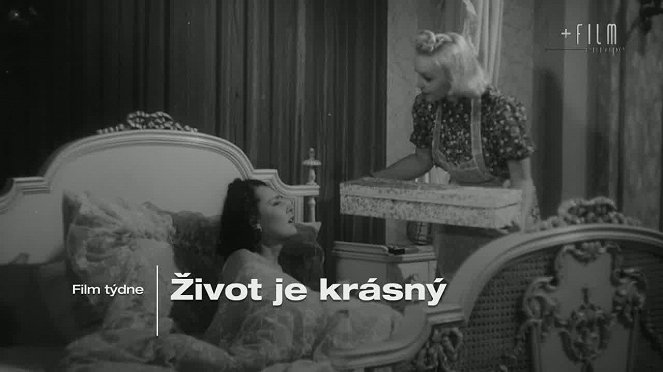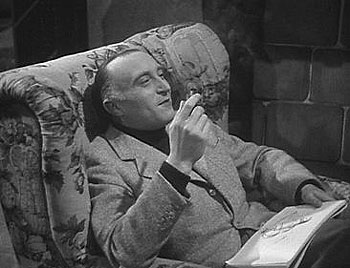Regie:
Ladislav BromScenario:
Karel SteklýCamera:
Ferdinand PečenkaMuziek:
Sláva Eman NováčekActeurs:
Oldřich Nový, Lída Baarová, Bedřich Veverka, Zita Kabátová, Ladislav Pešek, Jiří Steimar, Lola Skrbková, Václav Trégl, František Paul, Vladimír Majer (meer)Samenvattingen(1)
While seated one evening in a wine-bar that bohemian artists frequent successful writer Jan Herold makes the acquaintance of a young, beginning painter, Jarmila Bendová. Jarmila has a financial and artistic crisis because she has lost the model for her last painting, without which she is unable to bring off her exhibition, and without selling her paintings at the exhibition she will not be able to pay her debt to her landlord. Herold comes to know of her problems and because he has fallen in love with the girl he tries to give her all possible help. As an old man he models for her so she will be able to finish her painting, as a fortune-teller he frightens the landlord so he will not clamour for the rent from her, and he arranges an exhibition for her at his new publisher's in a prestigious gallery. Jarmila eventually sees through his disguises, and when Herold now imagines that he was unsuccessful in his endeavours, she visits him alone and makes clear that she reciprocates his love. (officiële tekst van distribiteur)
(meer)Video's (1)
Recensie (2)
I like this movie a lot and I never get tired of it even after the first time. Actually, it reminds me of Woody Allen's films - not only in that it presents the classic scheme of similar romantic comedies a little differently (but in a good and fresh way), but also in the generous portion of verbal humor. Moreover, Oldřich Nový is once again sensational and his performance here only confirms the fact that he did not deserve the label of a hundred percent lover (as many people unfortunately still perceive him today), because he was above all a hundred percent comedian with, let's say, amorous tendencies. And when he is accompanied by Lída Baarová, Bedřich Veverka, Zita Kabátová, Ladislav Pešek and the always great Václav Trégl, I have nothing to complain about.
()
Life is Beautiful can be used as an example of a typical film that was made based on the popularity of the previous works of its main stars. Simply put, if you liked Girl in Blueand you think Kristian is successful, you should like this film. However, it's really just a fake combination of silent film gems like Ahasuerus or Such Is Life. A story without a beginning and an end, without any deeper characterization of the acting characters, and with a primitive attempt to repeat the success of its predecessors. The young bohemian trio of Lída Baarová, Zita Kabátová, and Ladislav Pešek suffer for unknown reasons, and we don't even know the basic sketch of their previous lives and instead only a shortened thesis of destruction and failure. Into this comes a role with many outfits for Oldřich Nový version B5 (combined with celadon of indeterminate age, but with an artistic career - a grandfather with a hurdy-gurdy - an oriental interpreter of fate with a Jewish nose) and with the chattering Bedřich Veverka at his side as a skilled partner and Růžena Šlemrová as a gibbering aunt (characters created again only in a variation of roles played many times before and after). There's not much that works here, perhaps only Nováček's song "Bílé ruce," but even that is framed by somewhat clumsy dialogue, and the peculiar exhibition in the bar apparently created by cartoonist Honza.
()



Reclame